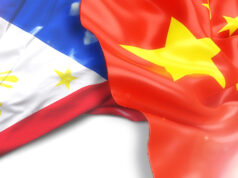Ecozone and tourism dreams for Tawi-Tawi
TAWI-TAWI, the southwestern-most province of the Philippines, is composed of a mainland surrounded by many small islands that are actually closer to the eastern coast of the Malaysian state of Sabah.
The site of the oldest mosque in the country and home mainly to the Sama-Badjao, Sinama and Tausugs tribes, it’s reputation has largely been being a remote, dangerous place — a stronghold of the bandit Abu Sayyaf Group.
But the national government and the Autonomous Region in Muslim Mindanao (ARMM), recognizing its strategic location as a gateway to the Brunei-Indonesia-Malaysia-Philippines (BIMP) growth area, are aiming to foster Tawi-Tawi’s potentials with the development of an economic zone (ecozone) and prepping its tourism attractions.
In late February, officials of the ARMM Regional Economic Zone Authority visited the planned site for the ecozone, while the ARMM-Department of Tourism (DoT) organized a media trip to Bongao, the capital of Tawi-Tawi.
DoT-ARMM Secretary Ayesha Mangundadatu Dilangalen acknowledged that promoting tourism to an inaccessible, stigmatized area is most challenging.
“That is why we are inviting national government agency officials and media to visit here so that they can personally see the concerns of the province,” she said.
At the same time, Ms. Dilangalen said such visits provide an opportunity to show the efforts that are being taken to develop the province.
“Many of these tourist spots highlight the historical and scenic beauty of the province,” she said.
One of these is Bod Bongao, or Bud Bongao, a 342-meter high mountain that is considered a pilgrimage site for Islam believers. Last year, the ARMM government completed a P56-million project for the area that includes a paved access road and a 1,890-step stairway leading up to the viewpoint called Bongao Peak.
“We look at Bod Bongao as a community-based ecotourism site where the community plays its role in the protection of the ecology surrounding the mountain and preservation of their cultures,” Ms. Dilangalen said.
SECURITY
Bongao Mayor Jimuel S. Que is pragmatic and optimistic at the same time that Tawi-Tawi’s repute and economy would soon be changing course with stronger cooperation between the local government, the community, and the military.
“The relationship of the three sectors are going well. Without peace and order, we cannot promote our tourism here,” Mr. Que told the visiting media.
Lt. Gen. Carlito G. Galvez, Jr., head of the Western Mindanao Command (WesMinCom) that has jurisdiction over Tawi-Tawi, has reiterated his call to the Abu Sayyaf to lay down their arms after five of their prominent members — two from Tawi-Tawi and three from the neighboring island of Sulu — surrendered in late January.
Mr. Galvez said “the government, in coordination with the Ulama (Islam scholars), has prepared rehabilitation programs to those who have surrendered and will surrender to ensure that they do not go back to their ill beliefs and practices.”
Aside from security concerns, Mr. Que said some basic services also still need to be fully addressed, including water and electricity supply, and internet connectivity.
The mayor said they have also intensified the campaign on waste management, especially in the coastal areas, to protect the potential beach destinations.
ECOZONE
Meanwhile, the Mindanao Development Authority (MinDA) said the planned Tawi-Tawi Special Economic and Freeport Zone has also been identified as the host for the revival of the traditional barter trading between Mindanao and its closest neighbors in Malaysia.
MinDA, in a press statement, said reviving barter trading and making it part of the ecozone would strengthen economic ties between the Philippines and the other focus areas of the BIMP-East ASEAN Growth Area.
The government has started drafting an executive order, to be signed by the President, to concretize the plan.
The initial salient points of the draft order, according to MinDA, include the creation of a governing board as well as the Barter Trade Facilitation Center within the Tawi-Tawi ecozone.
The governing board will be tasked to make recommendations and policies relating to barter trading in view of conventional trading rules.
An initial study undertaken by MinDA indicates that, “There is a need to find the best operational model with a pragmatic set of guidelines on how to gradually transition from the current system to formal trade in Mindanao.”
“The special ecozone where barter trade is one of the economic activities, has a deep socio-cultural objective that is linked with the intent to secure areas in Mindanao against transnational crimes and the threats of international terrorism,” MinDA Chair Abul Khayr D. Alonto said in a statement. — Carmelito Q. Francisco and Albert F. Arcilla



